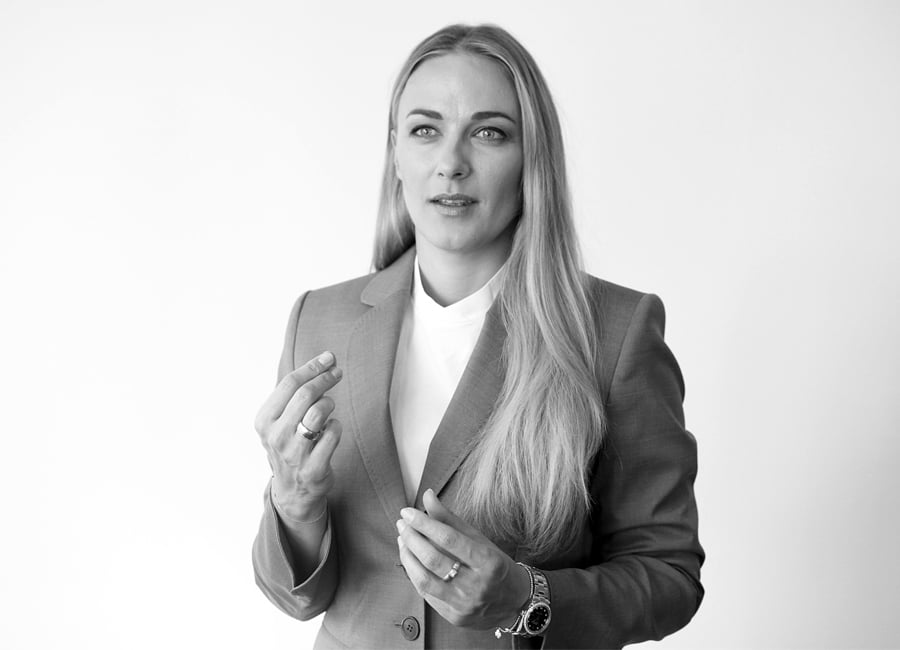
Cheap gas, cheap living, cheap money: A large proportion of Germans are only used to growth and prosperity. Boomers helped build the prosperous state, millennials were born into it. And now? The fat years seem to be over. The familiar formula - higher, faster, further - no longer works. What are the new parameters for growth and prosperity? And how should we respond to them? A conversation with Martin Hammer.
.jpeg)
While many are still on holiday or have just returned nicely refreshed, the buyers of the large car manufacturers and their "opponents", the sales professionals of the suppliers, have long been warming up for the upcoming price negotiations. This year, the talks are likely to be particularly difficult because many small and medium-sized enterprises (SMEs) are in deep water. However, giving up is not an option.

Since then, our editors have conducted more than 30 expert interviews in which experienced industry experts have shared their insights. These include Rita Herbers from Hamburger Volksbank, economist and psychotherapist Bessie Fischer-Bohn, Holger Rabelt from Commerzbank AG and many more. To mark our third anniversary, we have put together a selection for your summer reading in the form of our Editor's Pick: Reading highlights that have been particularly well received.

What’s more the crisis mountain of supply chain stoppages, material and personnel shortages continues to grow: high energy and material costs are looming. "A toxic cocktail," is how Uwe Köstens, founding partner of enomyc, sums up the situation. Crisis is his business: he has been advising on SME issues for more than 22 years. But how can companies manage a less bumpy landing in the new reality called "crisis"?

The disruption of global supply chains was seen as a short- to medium-term problem when the Corona pandemic struck home. Since the outbreak of the Ukraine war at the latest we now know things will never be the same again. This makes initiating a few key measures at operational level all the more urgent. These are simple to implement, but vital for dealing more flexibly with the new uncertainty.

Mentorship seems to be on everyone's lips at the moment, despite it being basically nothing new. And indeed, one mentorship model is disrupting the classic old-teach-young method. It's known as "reverse mentoring" and with this the Golf generation learns from the zoomers, the boomers from the millennials - vice versa and across departments. At companies like Microsoft, the CTOs learn from the next generation, they say.

Material shortages, delivery stoppages, rising energy costs. Sustainability targets, digitalization and electromobility: the automotive industry is under pressure to transform like almost no other. There is no choice in this. It is compelled to transform itself, must reinvent itself, must question the tried and tested - such as network structures, contracts and sales systems - and it is doing so. A conversation with Jan Brandt, interim manager and expert for turnaround and new business models.

We are on the brink of Web 3.0: Decentralized, anonymous Internet, built on the blockchain. The age of cryptos, NFTs, DAOs and the metaverse has begun. The possibilities? Limitless, they say. But what exactly is the metaverse? What effect does it have on businesses? An outlook with Franz Wenzel, Director at enomyc.

Are your scrap levels too high? The machines all running at optimal capacity? Have customers paid on time? Controlling your company based on defined KPIs can be a challenge without a dashboard. Senior Consultant Nantwin Apffelstaedt reported on this in detail in Part 1 of our "Dashboards" series. But how do you turn a dashboard into one that brings true impact to your company?

About 20 years ago, the first dashboards made their way into German companies. Today, these visualizations are considered indispensable for efficient corporate management, as they promise nothing less than comprehensive transparency at a glance. But in practice, it is often not that simple.

Casting from China and assembly from Eastern Europe were yesterday's news. Pandemics, lockdowns and a stuck freighter in the Suez Canal have taught us otherwise. What must the logistics of the future look like? How can Germany's economy become more independent and less vulnerable? How to adapt its logistics to climate targets? An outlook with Dr. Stefan Frings, partner at enomyc.

The Corona pandemic and its consequences, including disruption of important supply chains and shortages of materials, have plunged many companies into a crisis that threatens their very existence. Small and medium-sized companies in particular are having to contend with double-digit falls in sales and earnings. Companies that failed to prepare for the crisis in good times have been hit particularly hard. So it's high time to tackle the issue of preventive restructuring now.


.jpeg)









